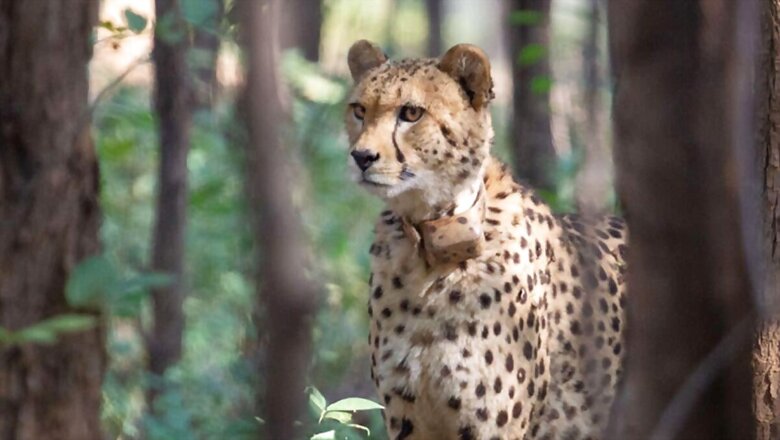
views
Namibia-based Cheetah Conservation Fund (CCF) — the non-profit organisation, which coordinated the historic translocation of cheetahs to India last year, has said despite numerous challenges cheetahs have shown every ability to survive in India.
The statement comes at a time when several questions have been raised over the government’s mega wildlife experiment to resurrect the extinct cheetah population in the country. Over the last two months, three adult cats and three cubs have died, while two of the felines have continued to stray too far from the national park.
RECENT DEATHS ‘ANTICIPATED’
The organisation said the recent deaths including that of a Namibian cat Sasha were calculated into “anticipated losses” in the first year for the reintroduction. It was referring to the government’s Cheetah Action Plan, which had factored in 50% mortality in the first year of translocation. It also added that it is “too early to label Project Cheetah a success, but the cheetahs have shown every ability to survive in India”.
“There’s a long road ahead, and there will be more setbacks. But from the perspective of the longest-running cheetah conservation project in Africa, CCF considers things in India are moving well,” the statement read.
Founded in Namibia in 1990, the non-profit trust is dedicated to the long-term survival of the cheetah and its ecosystems. The cheetah specialists also remained in Kuno till April and helped train the Indian field teams to manage the cats.
MORE CHALLENGES AHEAD
As India gears up to release more cheetahs into the unfenced area of Kuno, the organisation said the forest department can expect to face additional challenges. The foremost being the presence of leopards — a natural competitor of the cheetah in the Kuno National Park.
According to the experts, the density of leopards at Kuno is far greater than in African ecosystems, which may lead to increased pressure on the cheetahs. In addition, Kuno has other large carnivores that are not known to cheetahs, including wolves, sloth bears, dhole dogs and, occasionally, a dispersing tiger that wanders through from a nearby reserve. Any interactions among cheetahs and these species will be precedent in modern times, it stated.
Responding to concerns around the cheetah carrying capacity of Kuno National Park, it asserted that “it is impossible to determine the precise carrying cheetah capacity in Kuno until the cheetahs have been released and have properly established their home ranges”. To add to it, there is a lack of adequate spatial ecology data for cheetahs in India.
MOVEMENT ‘UNPREDICTABLE’
Out of the eight Namibian cats brought last year, four namely Oban, Freddie, Elton and Aasha were released into the unfenced wilds of the park. According to CCF, they have been doing well, exploring and hunting independently. However, Oban had ventured outside the bounds of the park twice, and was brought back into the ‘bomas’ (enclosures).
The experts also highlight that the cheetahs range widely during the initial few months after being moved into unfamiliar territory, and these movements are unpredictable. So, it is possible that cheetahs will stray from the park and encounter human populations and livestock. However, after several months, the cheetahs are expected to establish their territory and settle into home ranges.
“It (Project Cheetah) is the first attempt to return this species to India, and there is no precedent. While sad events, the deaths of the three cheetahs will not deter the international team of scientists, experts and government agencies committed to the project’s success. This is a long-term endeavour,” said the organisation. The CCF team is also likely to be back in Kuno soon, and said it will continue to offer its assistance as requested.



















Comments
0 comment